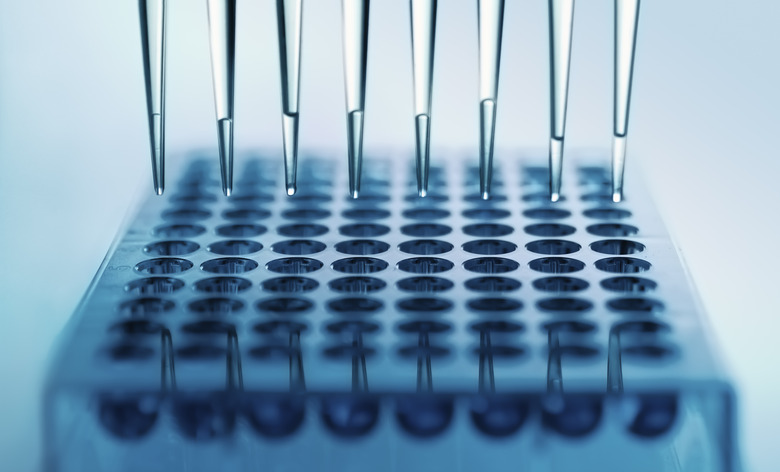The Importance Of Studying Human DNA Genetics
The study of human DNA and genetics can be intellectually fascinating, but it also has plenty of practical applications. From the use of DNA in court cases to the discovery of new therapies for genetic diseases, a thorough understanding of the human genome can have important medical, social and legal impacts.
Diseases and Treatments
Diseases and Treatments
Understanding the genetic basis behind human disease is one of the most important reasons for studying the human genome. While many genetic disorders are not treatable, early diagnosis can help improve the quality of life or even extend the lifespan of sufferers. Current clinical trials on genetic therapies for cystic fibrosis, hemophilia, and other genetic disorders offer the promise of eventual treatments that may give sufferers a life free of symptoms. Diagnostic tests can help couples decide whether to risk passing on specific disease-related genes to their children. Tests assist in vitro fertility doctors to specifically select embryos that do not carry the dangerous gene.
Human History
Human History
Studying human DNA and genetics can help scientists better understand where humans came from as a species. It can help elucidate the connections between different groups of people and give historians and anthropologists a clearer picture of historic human migration patterns. In some cases, a person's genome can give clues to his personal ancestry and help him understand his genealogy. Genetic testing has been used to verify or rule out relatedness of individual persons or populations.
Forensics and Legal Implications
Forensics and Legal Implications
The trial of O.J. Simpson in the 1990s brought to public light the use of human DNA in criminal cases, and the importance of human genetics in forensics has become even more important as techniques have improved. Human genetic information has been used to either match or rule out a suspect's DNA to biological evidence found at a crime scene, to identify victims and to exonerate convicted individuals using newer genetic methods not available at the time of the initial conviction. Paternity testing is another common legal application of genetic testing.
Genetic Enhancement
Genetic Enhancement
Human genetic enhancement is a controversial topic, but research in this area holds some of the biggest promise for future applications. It will require a thorough understanding of human genetics before scientists can alter the human genome at the embryonic level, but once that is achieved, it may mean an end to certain incurable genetic diseases such as Down syndrome, congenital deafness and congenital heart defects. More controversial applications may include altering human DNA to enhance athletic ability, intelligence, or other characteristics.
Cite This Article
MLA
Coila, Bridget. "The Importance Of Studying Human DNA Genetics" sciencing.com, https://www.sciencing.com/importance-studying-human-dna-genetics-2334/. 13 March 2018.
APA
Coila, Bridget. (2018, March 13). The Importance Of Studying Human DNA Genetics. sciencing.com. Retrieved from https://www.sciencing.com/importance-studying-human-dna-genetics-2334/
Chicago
Coila, Bridget. The Importance Of Studying Human DNA Genetics last modified August 30, 2022. https://www.sciencing.com/importance-studying-human-dna-genetics-2334/
